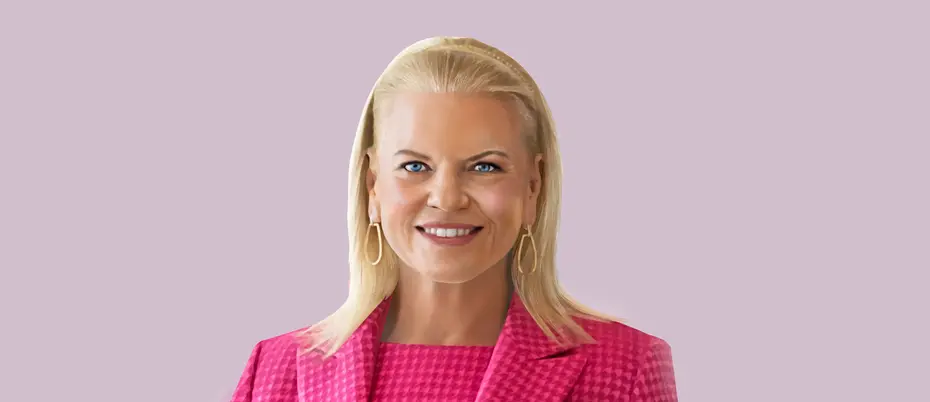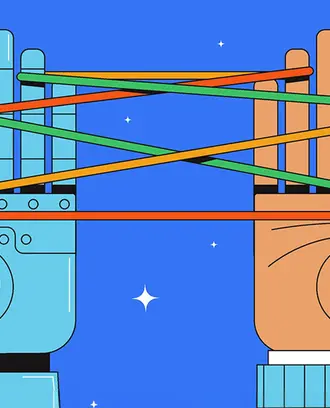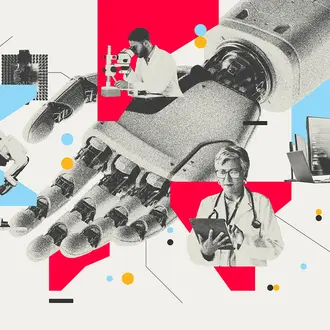Leadership
The former IBM CEO on diversity and the discomfort of good ideas
Former IBM CEO Ginni Rometty knows the value of active listening and the importance of a diverse set of minds for idea generation.
For Ginni Rometty, when it comes to the people generating and developing ideas on her teams, the broader their background the better.
“I genuinely believe I get a better team, better ideas, and better products from diverse talent,” said Rometty, who served as chairman, president, and CEO of IBM until stepping down in 2020.
Today Rometty co-chairs OneTen, an organization aimed at hiring 1 million Black Americans without four-year degrees to family-sustaining jobs by 2030. Last October she was announced as MIT’s next visiting innovation fellow.
We spoke with Rometty about her commitment to broadening the talent pipeline and diversifying the talent pool, why good ideas can make people uncomfortable, and more.
What inspires you?
I’m inspired by opportunities to collaborate with others to solve big systemic problems. At IBM, I was surrounded by extraordinary colleagues who shared a belief in the fundamental promise of technology: that when we apply science to real-world problems, we can create a tomorrow that is better than today. Our team established IBM as the industry's leading voice in technology ethics and data stewardship.
The difference between a job and a career is doing what you love and working with a company whose purpose aligns with your own. I’m fortunate to have spent nearly 40 years building a career doing work that inspired me each and every day.
Who inspires you?
My mother is certainly my hero. When I was young, my father left. He left my mother with four children and no money for our home or food. She had been a homemaker; she had no job, no college degree, but she was determined to provide for us. She worked multiple jobs to support her family. At night, she went back to school to get an education. And in the end, she saw to it that all four of us found a way through school and started down a path to success in our own careers.
Through all that, I learned from my mother an important lesson that still inspires me to this day: Never let anyone else define you, only you define who you are.
Where do you get ideas?
I get ideas by asking a lot of questions, listening to learn, and then connecting the dots (both the obvious and otherwise). Active listening is critical for a successful career. It shows the other person that you genuinely want to learn, and they’ll be more engaged when they see that you value what they have to offer. If you ask for advice and are willing to listen, everyone is willing to help you. If you listen more than you talk, everyone is a mentor from whom you can learn.
How are new ideas discovered and developed in your organization?
If you want to find new ideas, it can help to listen to different voices, to hear from people with different backgrounds and different experiences. That’s why an authentic commitment to diversity and inclusion is so important.
When I was a junior systems engineer, I was assigned to planning for the installation of big IBM systems. The first thing I did was teach myself everything I could to learn how the systems work, right down to helping my fellow engineers physically install the systems. That approach to developing a new process also holds true for developing a new idea — learn everything you can from the people with the right expertise and hands-on experience, then take what you’ve learned and share it with the next person. That way, when it comes time to implement your idea, you’ve built yourself a network based on the knowledge you share, not who you know.
What was your worst idea?
I’d say the worst ideas I had in my career were the self-imposed obstacles I put up in my own path, which I think is true for many, especially women. Years ago, my boss offered me a big promotion. I told him I wasn’t sure I was ready. For whatever reason, I had these notions that I needed two more years of experience to prepare, to become more confident. Later, when I spoke to my husband, he asked me flat out, “Do you think a man would have responded that way?” And I said, “No, he wouldn’t have.” The next day I accepted the job.
How do you know an idea is a good one?
While it’s certainly not true in every case, one sign an idea is a good one is if it makes people a little bit uncomfortable. And that’s because growth and comfort never coexist.
I often ask people, “When do you feel you grew the most during your career?” Their response usually involves a time when they took some sort of risk.
I think too many people abandon a good idea when it pushes them or others outside of their comfort zone, when that idea may actually be the best thing to help the person or organization grow.
What's the biggest idea you are working on right now?
I currently serve as co-chair of OneTen, a coalition of CEOs and companies committed to working together to upskill, hire, and promote one million Black individuals without four-year degrees into family-sustaining jobs with opportunities for advancement over the next 10 years.
Our aim is to dismantle the structural barriers in our society that disproportionately affect Black Americans. While many companies have come to rely on a college degree as a proxy for success in the workplace and a prerequisite on applications, nearly 80% of Black Americans don’t have a four-year college degree. That’s why we’ve encouraged companies to shift to a skills-first approach, in order to open the talent pipeline to a broader and more diverse talent pool.
At MIT Sloan, we talk about ideas made to matter — ideas that are carefully developed and have meaningful impact in the world. In that context — what is your idea made to matter?
Economic opportunity is the best equalizer. That’s been the driving motivation behind my work with OneTen. And it’s a truth I’ve seen borne out throughout my career.
At IBM in 2012, we had trouble hiring enough cyber talent, so we championed the P-TECH program — going to high schools and community colleges in underserved areas and providing them with a curriculum that would develop the skills we needed, and a chance at a job. After a year, we found that the employees we hired from this program performed as well or better, demonstrated equal innovation, and were more loyal, than those hired only for their university degrees. And notably, 75% of our hires from the program went on to get a college degree.
Ultimately, I realized that a lot of these folks were just like my mother. Their success — once given the chance — shows that it was never a question of ability or aptitude, but of access and opportunity.
Read next: 3 insights on building relationships from IBM's former CEO




